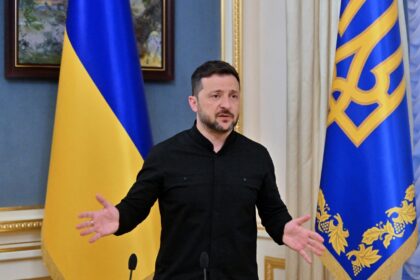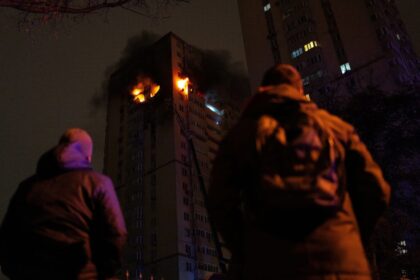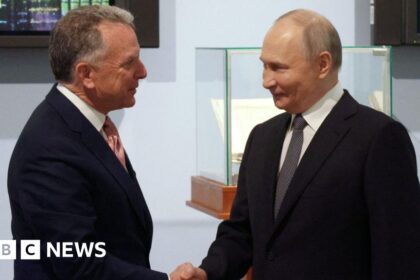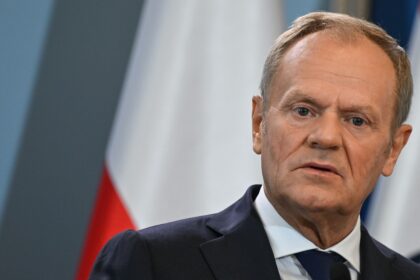**US Refuses to Abandon Peace Talks with Ukraine, Says Envoy**
The US has ruled out abandoning peace talks with Ukraine, despite previous threats from the White House to do so. US Special Envoy Keith Kellogg made this announcement in a television interview with Fox News.
According to Kellogg, the Ukrainians have already agreed to give up control of occupied land, but only on a de facto basis. This means that they are willing to cede control to Russia as long as it is not formalized forever.
The US has been working intensively to broker a peace deal between Ukraine and Russia. President Vladimir Putin announced a temporary ceasefire from May 8 to 11, which Kellogg criticized as “absurd.” However, the US has not given up on its efforts to find a peaceful solution.
**Trade War Impacts Oil Prices**
The decline in crude prices started in early April when US President Donald Trump announced new tariffs on imports. China responded with its own tariffs, sparking a trade war between the world’s biggest oil consumers.
**Ukraine and US Sign Minerals Agreement**
On April 30, Ukraine and the US signed a long-awaited minerals agreement that establishes a joint investment fund for reconstruction in Ukraine. The deal includes a 50-50 investment structure between the two countries and contains “a lot of good details.”
**EU Prepares Plan B on Economic Sanctions**
The EU’s top diplomat, Kaja Kallas, has said that the EU is drawing up a “plan B” to maintain economic sanctions on Russia in case the Trump administration pulls out of Ukraine peace negotiations.
**Russian President Acknowledges Ukrainian Presence**
Despite declaring victory, Russian President Vladimir Putin acknowledged on April 30 that Ukrainian soldiers remain in the region. This is a significant acknowledgment, as it suggests that Moscow is aware of the presence of Ukrainian forces on its territory.
**Multinational Deterrence Force Fails to Meet Expectations**
European nations would struggle to deploy even 25,000 troops to Ukraine as part of a proposed multinational “deterrence” force. This is far short of the 64,000-strong target suggested by U.K. defense officials.
**Experts Weigh in on US-Ukraine Relations**
The Kyiv Independent’s Francis Farrell recently spoke with retired US Army officer and former Nebraska State Senator Tom Brewer about US-Ukraine relations under the Trump administration. They discussed why Nebraska is interested in Ukraine’s post-war recovery and why it’s essential for US politicians to visit Ukraine to counter myths spread by Russian propaganda.
**US Will Not Abandon Peace Efforts**
Kellogg emphasized that the US will not abandon peace efforts despite previous threats from the White House. The US has threatened to walk away from efforts to broker a ceasefire between Ukraine and Russia if progress is not made.
In conclusion, the US remains committed to finding a peaceful solution to the conflict in Ukraine. Despite previous setbacks and disagreements, the two sides continue to engage in talks, and there are indications that they may be willing to compromise on key issues.
—
**Analysis:**
The recent developments in the conflict between Ukraine and Russia suggest that the situation is more complex than it initially appears. The US has shown a commitment to finding a peaceful solution, but Moscow’s actions have been inconsistent and unpredictable.
The trade war between China and the US has had an impact on oil prices, which could have significant consequences for global markets.
The minerals agreement signed by Ukraine and the US is a positive step forward in terms of reconstruction efforts. However, it remains to be seen whether this will lead to meaningful economic cooperation between the two countries.
Finally, the EU’s preparation of a “plan B” on economic sanctions suggests that they are prepared to take a harder line against Russia if necessary.
**Expert Commentary:**
As an expert in international relations and conflict resolution, I believe that the situation in Ukraine is a complex one. The US has shown a commitment to finding a peaceful solution, but Moscow’s actions have been inconsistent and unpredictable.
The recent developments suggest that both sides are willing to compromise on key issues, which could lead to a breakthrough in negotiations. However, this will require careful consideration and coordination between the two parties.
In terms of oil prices, the trade war between China and the US is likely to have significant consequences for global markets. This could impact consumer confidence and fuel further economic uncertainty.
Finally, the EU’s preparation of a “plan B” on economic sanctions suggests that they are prepared to take a harder line against Russia if necessary. This could have significant implications for European economies and relations with Moscow.












